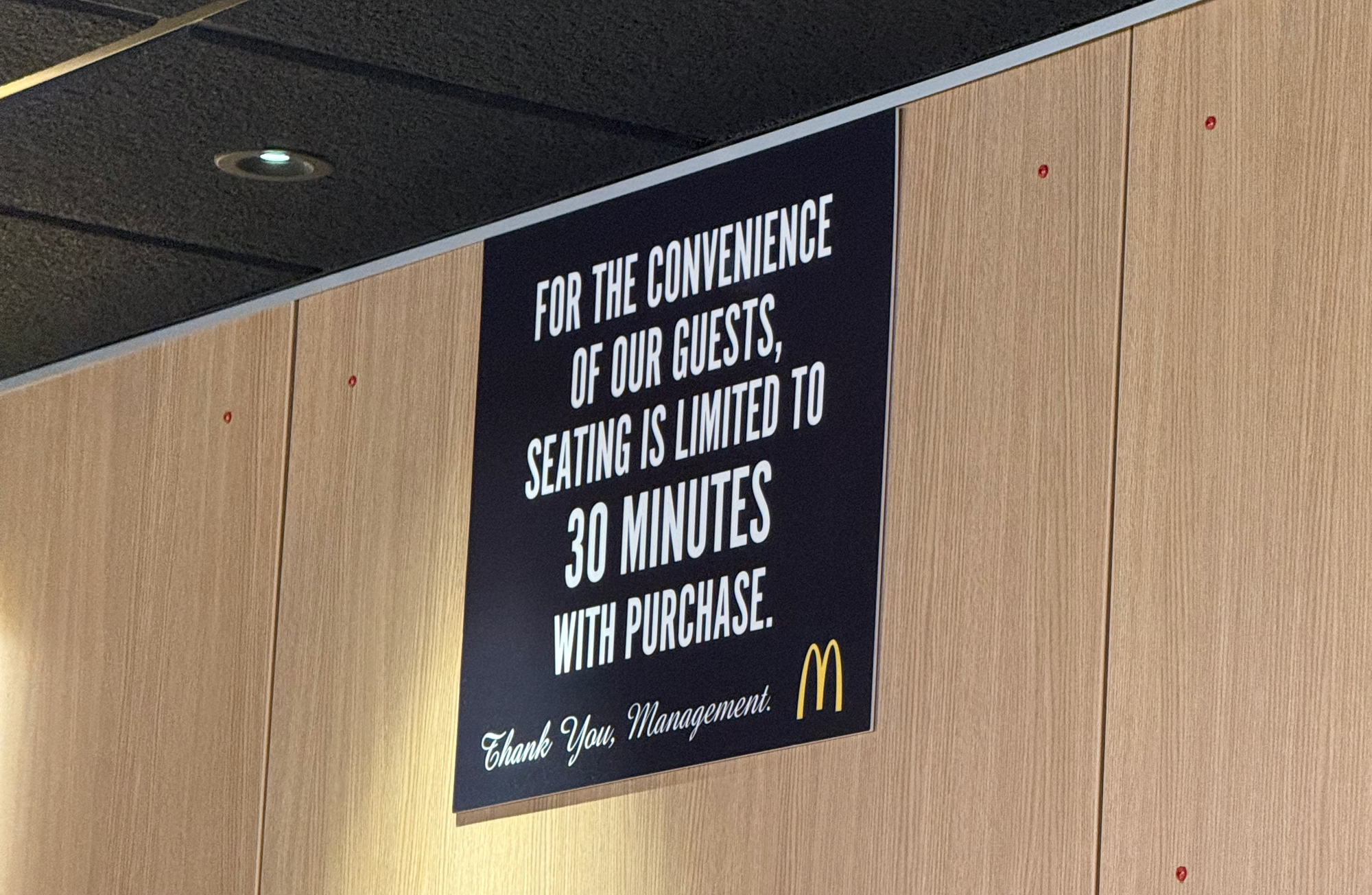Please Inform Management

In high school, I got a minimum-wage job at my local grocery store. A month in, I noticed a sign near the break room punch clock:
WE WILL NOT ACCOMMODATE SCHEDULE CHANGES FOR THIS WEEK.
-MANAGEMENT.
It was the week of Christmas, and the sign drained the little holiday spirit I had left. "MANAGEMENT," some anonymous authority, had issued a verdict. There was no room for appeal.
The issue is more complex than it seems. The holidays are chaotic; employees want time off with their families, while frantic shoppers scurry for last-minute feasts. Managers are left navigating demands from all directions.
Managers must assert authority to survive hectic weeks, and strict notices are generally effective. These signs convey urgency and a lack of leniency, leaving no room for employee misinterpretation. However, this clear solution may also come with a cost.
What "Management" Does
"Management" is faceless and skews power dynamics. Signing off this way grants protection to managers. It is much harder to challenge an institutional role like "Management" than an individual manager. While using a real name makes the individual a target for negative reactions, "management" carries bureaucratic connotations and little room for compromise.
Yet this approach has consequences. While it may solve the immediate holiday scheduling issue, it damages long-term trust and morale, which can lead to high employee turnover. In 2022, MIT Sloan Management Review found that a toxic work culture, heavily driven by disrespect, is ten times more predictive of resignation than compensation.
A Difference in Managing Customers
The same "Management" that issue harsh orders to employees is much more careful with customers. Customers can spend their money nearly anywhere and have the immediate power to walk away. So, when enforcing rules on customers, “Management” tends to take a lighter approach.
At the McDonald's in New York City's Union Square, I noticed a similar notice signed by "Management." This sign, however, contrasted with the one I saw at my job. It enforces a 30-minute seating limit, presumably to prevent overcrowding.

While the sign in my break room felt harsh and non-negotiable, this McDonald's notice seemed noticeably softer and more polite. This difference is no accident.
The sign softens the message through linguistic choices. In pragmatics, the study of language in context, there's the concept of a face-threatening act (FTA). An FTA is an action that may damage a person's reputation, such as making a demand or giving criticism. In this instance, the business asking a customer to leave the store in the wrong way may cause them to "lose face," creating a negative experience from an FTA.
To prevent this, the Union Square McDonald's sign incorporates indirectness by adding the phrase "For the convenience of our guests" to soften the policy and make the customer's response feel uncoerced (Brown & Levinson, 1987). The situation is framed not as a demand by the company, but as a rational decision by the customer to make space for others.
Although the sign still uses the authority of "Management," the scripted "Thank you" adds a friendlier tone, which may improve how the message is received.
Power at Play
Linguistic differences between signs aimed at employees and customers reveal managers' different approaches. When addressing employees, managers may feel less of an obligation to preserve face during FTAs. With employees, businesses are often blunt and impolite in their communications, leaving no room for pushback.
With customers, however, businesses often adjust their tone. Businesses tend to incorporate more polite language with higher-status customers. At upscale restaurants, for instance, a waiter may hand you a bill with "whenever you're ready," a polite, pressure-free prompt for payment. In contrast, fast food chain employees might be more blunt with "that'll be $10.46".
The way businesses communicate, and how they use “Management,” signals how they value different people. An excellent employee may receive more verbal respect than a part-timer, just as tourists at a fast food establishment may be treated worse than diners at an upscale restaurant. For businesses, the way managers and employees communicate dictates who is valued, and how much.





